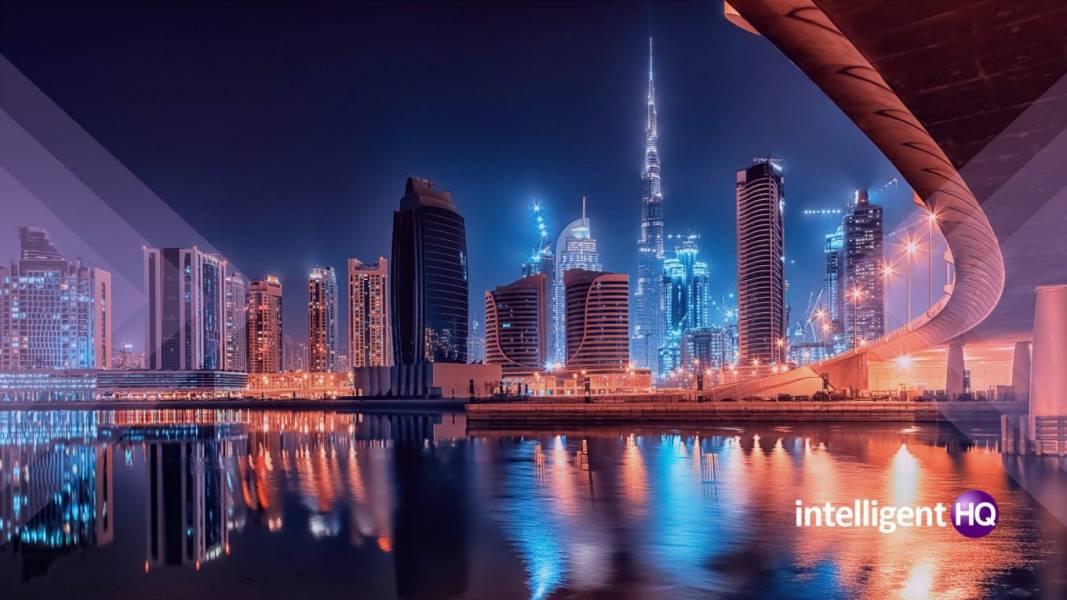Dubai is quickly emerging as one of the Metaverse industry frontrunners. In a recent tweet, the Crown Prince of the Emirate announced that the city’s new strategy will support more than 40,000 virtual jobs by 2030 and will add $4 billion to Dubai’s economy in five years. All this is making Dubai stand out as a truly modern, “smart”, Metaverse-driven city.

The Metaverse will make Dubai’s economy smarter
There are currently over 1,000 companies in the metaverse and blockchain sector that are based in Dubai; a considerable number indeed. As the city modernises its virtual sector laws, it aims to support more than 40,000 virtual jobs by 2030 and add $4 billion to Dubai’s economy in five years.
For this reason, the emirate has recently announced the formation of a Higher Committee for Future Technology and Digital Economy chaired by His Highness the Crown Prince of Dubai.
“We are working as a team to enhance Dubai’s position as a global birthplace and research laboratory for future technologies and one of the world’s top 10 metaverse economies, in line with the Dubai Metaverse Strategy,” said the Prince.
The Committee’s main goals will be to design policies and supervise the implementation of strategies related to the metaverse, AI, blockchain, Web3, virtual reality (VR), augmented reality (AR), the Internet of Things (IoT), data centers, and cloud computing.
The Metaverse companies
Dubai’s strategy has already started to pay off. Just recently, the crypto exchange Bybit has moved its global headquarters to Dubai, while Crypto.com and FTX have both announced that they would also move to the city.
What is more, some of Dubai’s largest companies are starting to enter the Metaverse market.
Amongst others, according to Fortune,
“Dubai-based airline Emirates said in April that it would expand its use of the metaverse and NFTs. Damac Group, a conglomerate of businesses including global property development company Damac Properties and fashion house Roberto Cavalli, said in April it would invest $100 million to build digital cities in the metaverse. And UAE health care firm Thumbay Group plans to release a metaverse hospital by October of this year, where patients can consult with a doctor virtually”.
Beyond the Metaverse, the strategy that the Prince is promoting aims to support 5 main pillars: extended reality (which combines the physical and virtual worlds), augmented reality, virtual reality, mixed reality, and digital twins (a virtual representation of an object or system).
“The technology pillars of the strategy are data, network, cloud, and edge computing, which focus on real-world data acquisition, validation, storage, processing, and management. Other pillars include promoting full 5G network deployment to enable edge computing and provide on-demand computer system resources. Instead of using the cloud, edge computing allows data to be collected, stored, and processed locally via smart devices and local networks.”
The smart-city revolution in the Metaverse
All of the past year’s achievements have enabled Dubai to, for the second year in a row, ve ranked as the smartest cities in the Middle East and North Africa region, as per the Smart City Index 2021. Compared to 2020, the Emirati city climbed up 14 places globally.
Apart from the Metaverse strategy, the recent Dubai Plan 2021 aims to make Dubai a smart and sustainable city. The strategy’s goal is the transformation of about 1000 government services which focus on six key sectors namely: transportation, infrastructure, communications, economic services, urban planning and electricity.
As His Highness the Crown Prince of Dubai has planned, the main products which will be supported include:
“Smart life, which deals with health, education, transport, communications, public utilities, and energy services. Smart economy, which deals with developing smart companies, port services, smart stock exchanges, smart jobs. Smart tourism, which deals with providing a smart and convenient environment for visitors to the emirate, including visa, flight, smart gates, and smart hotel services.”
Beyond the technology tools, Dubai has a happiness agenda. According to the official Digital Dubai website:
“We want to make Dubai the happiest city on earth. As we transform the future of Dubai through smart technology and innovation, we have prioritised happiness as our primary goal. By addressing the fundamental needs of our residents and visitors, we can enhance everybody’s short- and long-term happiness and wellbeing, and create a global benchmark for other cities to follow our lead.”
The Metaverse regulations
Dubai is the world’s first and only jurisdiction which has set up a dedicated virtual assets regulator. In March 2022, the Crown Prince introduced Dubai’s Virtual Assets Law (VAL) and established the VARA; a clear example of Dubai’s leadership in this sector.
As he explained:
“The VARA regime is structured to catalyse collaboration and prioritise public protection. Our mission is to provide a progressive regulatory framework that can securely enable borderless economic opportunity across the global virtual assets Industry. Dubai is a global leader in adopting and adapting to new technologies. With VARA, the emirate is well-positioned to lead the global adoption and regulation of digital assets.”
The law manages to provide some clarity, investor and economic protection, as well as transparency, so companies can operate lawfully whilst at the same time complying with AML-CFT considerations in this rapidly growing domain.
His Excellency Helal Al Marri, Director General of the Dubai World Trade Centre Authority that is home to VARA, explained:
“Virtual assets are transforming the financial world and are set to be the primary drivers of the future global economy. Establishing the world’s only independent regulator for virtual assets is symbolic of Dubai’s confidence in the potential of this sector.”
If Dubai indeed manages to increase its number of virtual jobs by fourth-fold by 2023, that is yet to be seen. Regardless, the groundwork has already been laid. There is no city currently (or country) that is taking the Metaverse so seriously which will likely allow it to reap the rewards in the future. It will be interesting to see if other countries will follow suit. Above all, Dubai can be called a truly “smart” city.

Hernaldo Turrillo is a writer and author specialised in innovation, AI, DLT, SMEs, trading, investing and new trends in technology and business. He has been working for ztudium group since 2017. He is the editor of openbusinesscouncil.org, tradersdna.com, hedgethink.com, and writes regularly for intelligenthq.com, socialmediacouncil.eu. Hernaldo was born in Spain and finally settled in London, United Kingdom, after a few years of personal growth. Hernaldo finished his Journalism bachelor degree in the University of Seville, Spain, and began working as reporter in the newspaper, Europa Sur, writing about Politics and Society. He also worked as community manager and marketing advisor in Los Barrios, Spain. Innovation, technology, politics and economy are his main interests, with special focus on new trends and ethical projects. He enjoys finding himself getting lost in words, explaining what he understands from the world and helping others. Besides a journalist, he is also a thinker and proactive in digital transformation strategies. Knowledge and ideas have no limits.



























